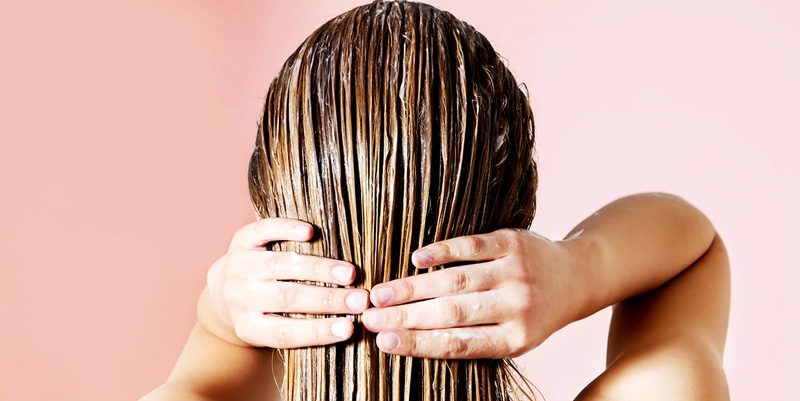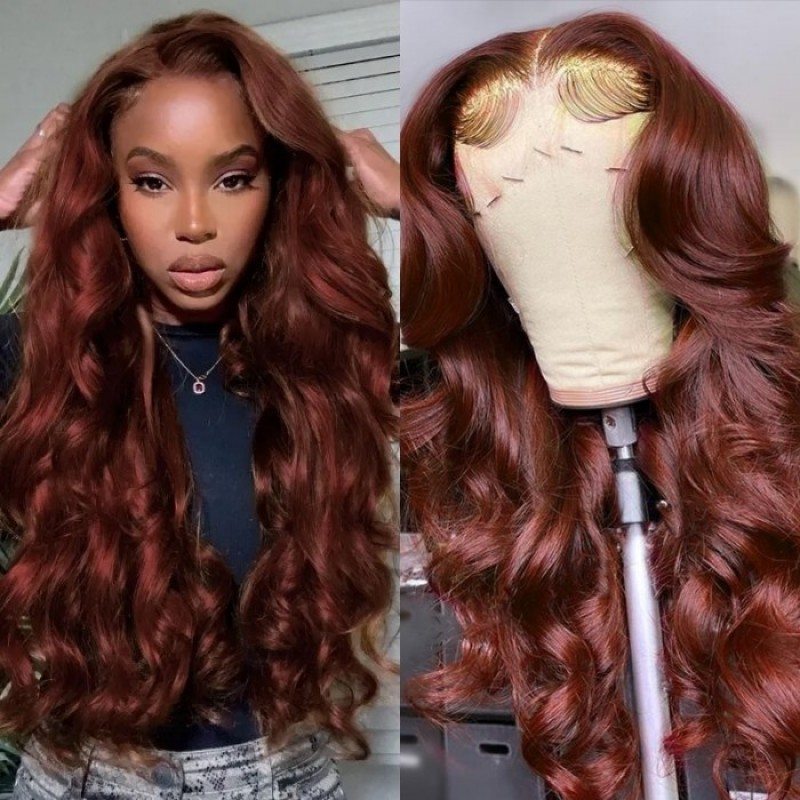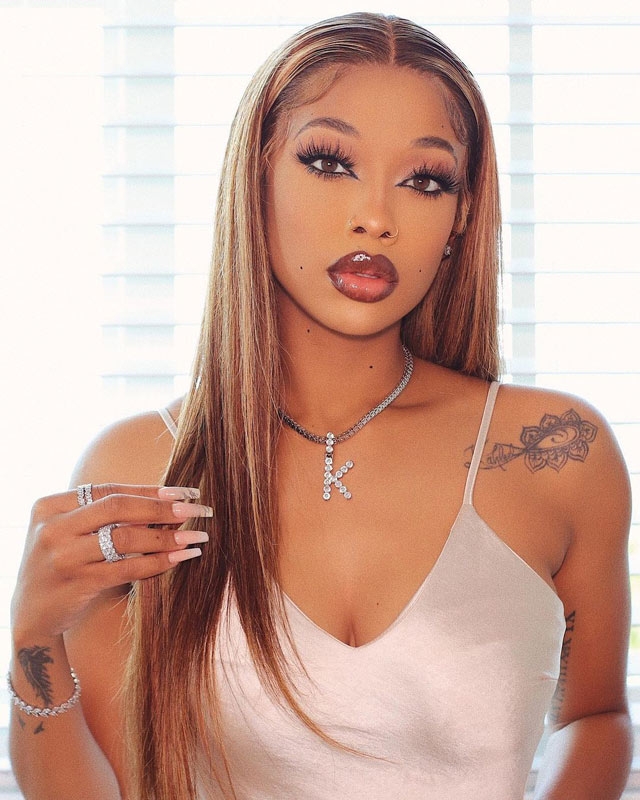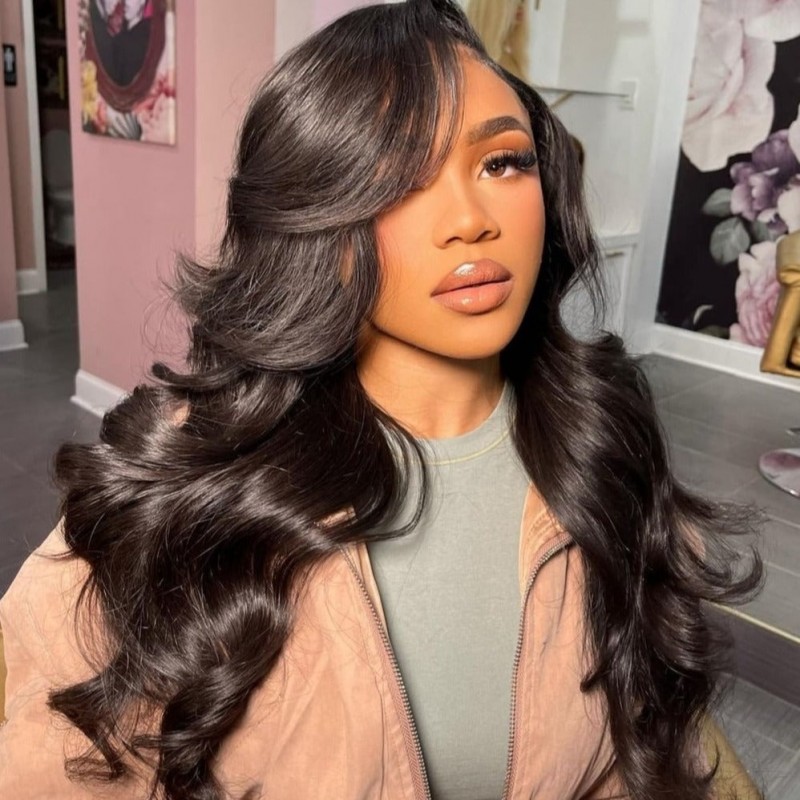What cause oily or greasy hair?
We always suffer from sweaty hair, hair thinning, getting oily on summer day, and understand how to take care of our hair from ultraviolet, heat tools and other harmful element. But we generally have no idea of the reasons caused oily hair in winter.
The change of climate and temperature drops
Autumn, the transitional period between summer and winter passes quick, winter comes with cold weather after raining. Cold wind greets winter with falling air temperature. In order to protect the roots of hair from breakage and brittleness, the scalp begins to secrete oil to build a protective wall. Of course, this step helps to withstand cold weather hurt at great extent, but brings the excessive oil accumulation in the meantime. The scalp gets scaly as well.
Hormonal imbalances
The menstrual cycle is regulated by certain sex hormones that can directly affect how we look and feel. The temperature difference between indoor and outdoor and hormonal changes in the menstrual cycle in winter can influence the oiliness of hair.
Due to limited research on hair and the menstrual cycle, the details about certain changes on hair during this period have not been figured out. But we do know that hormones can alter how we feel, and there's some evidence that they can also change the appearance of hair and even cause it to dry out.
Improper conditioners

Applying conditioner on our hair is the common way we used to relieve and repair bad experience of hair. Conditioners can moisturize and feed hair with nutrient because they are made of plant or animal oil. So, for people with oily hair texture, use conditioners that include too much oil may play a bad role on your pretty hair and lead to more greasy hair in the end.
Warmer clothes
You probably wrap up warm by wearing a thick hat or keeping your hood up to protect hair from the cold wind hit. Too thick clothes can cause you to sweat more, making your hair appear oilier than usual. Waxy oils from your scalp become fluid at warmer temperatures and, with sweat, move further down your hair to make the roots look greasy.
The cold winds outdoors and dry heat indoors can wreak havoc on your strands, leading to problems, such as hair breakage, split ends and oily hair. Oily, sticky hair can be problematic as well as frustrating, especially when it comes to styling your hair or leaving them loose.
How to deal with greasy or oily hair in winter?
Wash your hair at right intervals
It is hard to find the right interval of washing hair. Yes, cleaning your hair by shampoos will throw the oil elements away, but wash hair too often is harmful to your scalp and probably cause severe oil generation. Over-washing can lead to increased oil production as the body tries to compensate for dry scalp. Image the scalp as a wall, it becomes more and more thin with heavy rainfall. So, for the sake of keeping protect brain from threats, the skin will secrete oil as much as possible. Finally, the problem of oil hair do not solved, the new risk of scalp hurt comes.
Washing your hair once a week is proper. For oil texture, twice a week is available. And you could try to adjust the number according to your special hair texture.
Wear wigs

Wigs are the great friends to help you avoid this issue.
For safe keeping, people get used to wear a wig grip or cap before install wigs, such as T part wigs, lace frontal wigs, which leaves the space between wig hair and skin oil. And glueless wigs, like V part wigs or U part wigs that directly attach on your hair but do not touch the scalp so that stay cool.
Pick shampoos that made for oily hair
Select the shampoos that are particularly for oily hair. The normal PH level of shampoo is 4.5 or 6.7, but for oily hair, you need more than that. When the level of PH is higher than 7, it means that the shampoo is alkaline and effective to clean up oil elements and dust on the hair. However, strongly alkaline may have bad impact on hair texture and trend to dullness. Slight alkaline shampoos are recommended in this condition.
Whatever the cause of oily scalp, it is useful to use a mild shampoo. If the scalp feels very greasy and has dandruff, using a small amount of gentle shampoo and conditioner is allowed.
Avoid touch your hair by your fingers frequently

Do not touch your hair frequently as you will end up transferring dirt from your fingers to your scalp, which is the easiest way to prevent your hair from looking too oily in winters.
Decrease the usage of conditioner or just condition the end
Hair conditioner helps to make our hair smooth and glossy. Meanwhile, the oil content in the conditioner may leave out on the surface of the scalp and cause over accumulation of oil. Compare with giving up to apply hair conditioner, decrease the usage of it or just condition the end of hair seem better, which feed the hair and avoid too much hair oil.
Apply hair powder
Hair powder is the tool that you need to know for eliminating oil from your hair full year. Sprinkle some powder on your hair roots and rub it in. It’s ideal to apply the powder before going to bed as it will allow the powder to set overnight, and your hair will feel and look dry in the morning.
Try curly hairstyles

Curled hair tends to give more volume than straight hairstyles at the roots, which in turn prevents your hair from becoming too oily too quickly. Go to a salon and try to change your hairstyle in winter. Curly hairstyles, such as body wave, Jerry curly or kinky curly are wonderful and popular to ooze your charm.








